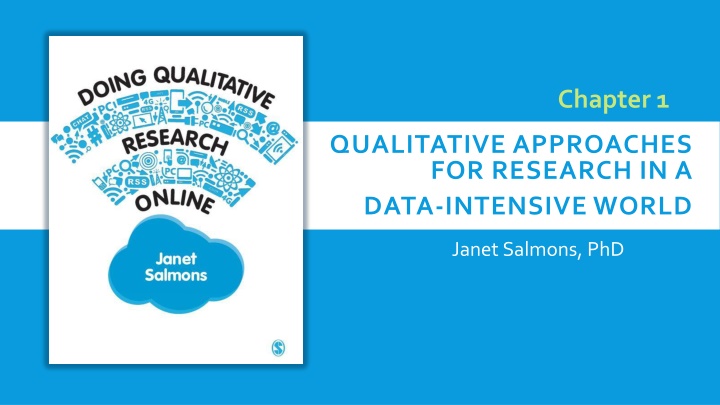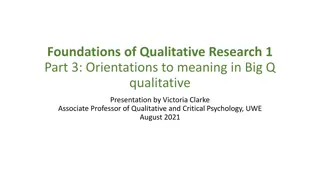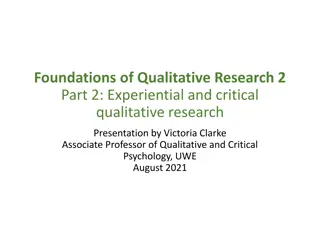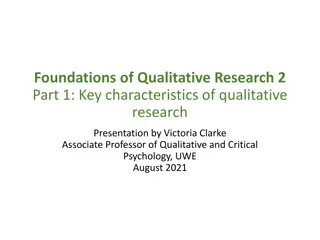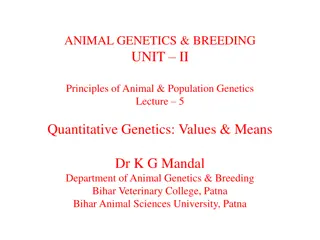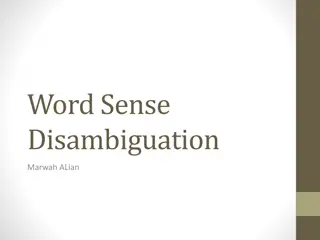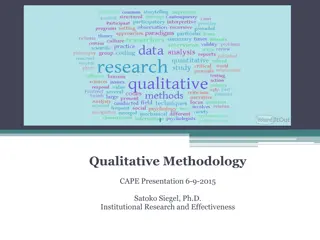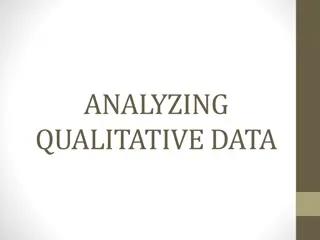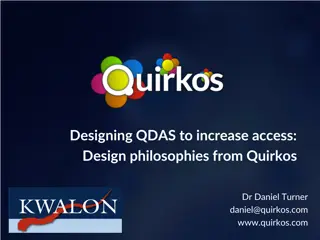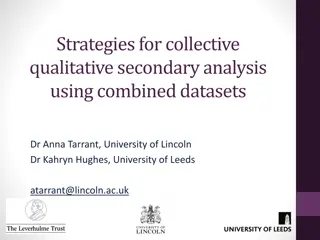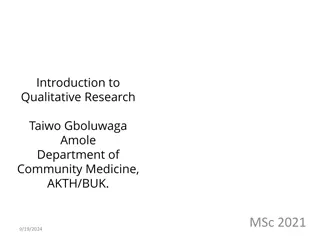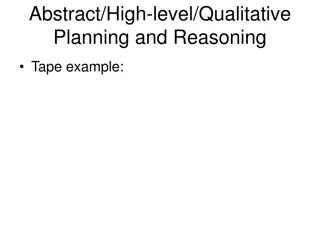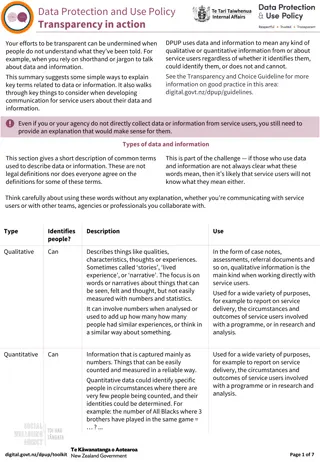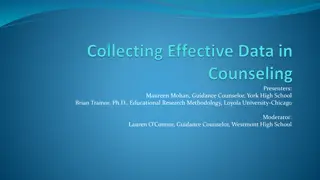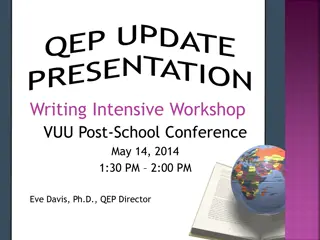Qualitative Approaches in a Data-Intensive World
Qualitative research involves studying perceptions, experiences, and behaviors through verbal or visual expressions. In a data-intensive world, online communication plays a crucial role in data collection. Qualitative eResearch utilizes Information and Communication Technologies (ICTs) strategically for various research purposes, from recruiting participants to setting up virtual interactions. Different online communication options cater to one-to-one, one-to-many, and many-to-many interactions in qualitative eResearch.
Download Presentation

Please find below an Image/Link to download the presentation.
The content on the website is provided AS IS for your information and personal use only. It may not be sold, licensed, or shared on other websites without obtaining consent from the author.If you encounter any issues during the download, it is possible that the publisher has removed the file from their server.
You are allowed to download the files provided on this website for personal or commercial use, subject to the condition that they are used lawfully. All files are the property of their respective owners.
The content on the website is provided AS IS for your information and personal use only. It may not be sold, licensed, or shared on other websites without obtaining consent from the author.
E N D
Presentation Transcript
Chapter 1 QUALITATIVE APPROACHES FOR RESEARCH IN A DATA-INTENSIVE WORLD Janet Salmons, PhD
OBJECTIVES After reading and reflecting on Chapter 1, you will be able to: Understand defining characteristics of qualitative research. Analyze the attributes of online communication. Consider ways in which qualitative research approaches can use online communications for data collection. Understand key questions for applying the Qualitative eResearch Framework to the research design process.
WHAT IS QUALITATIVE RESEARCH? For the purpose of this book, a concise working definition will be used: Qualitative research is an umbrella term used to describe ways of studying perceptions, experiences or behaviors through their verbal or visual expressions, actions or writings.
WHAT IS QUALITATIVE eRESEARCH? The working definition for qualitative eResearch encompasses diverse online methods: Qualitative eResearch is an umbrella term used to describe methodological traditions for using Information and Communication Technologies to study perceptions, experiences or behaviors through their verbal or visual expressions, actions or writings.
ONLINE RESEARCHERS USE TECHNOLOGY STRATEGICALLY Qualitative eResearchers use Information and Communications Technologies (ICTs) to recruit participants, as a medium for data collection or as the setting for the study. A wide range of ICTs can be adapted for qualitative research purposes.
COMMUNICATION & QUALITATIVE eRESEARCH: FROM INDIVIDUALS TO CROWDS One-to-One One-to-Many Options Many-to-Many Email Text message Chat Posts to websites, blogs, microblogs Email list Social networking sites, Comment areas, Crowdsourcing Discussion forum Text Voice over internet protocol (VOIP) calls Podcast Voice over internet protocol (VOIP) conference calls Verbal Image or media attachments Links to images or media Interaction as visual, digital or avatar representation Image or media attachments, links to images or media Vodcast Interaction as visual, digital, avatar representation Virtual worlds Massively Open Online Games (MOOGs) Visual Videoconference, video chat Web conferencing space Virtual worlds Massively Open Online Games (MOOGs) Webinar Mixed or Multiple
THREE TYPES OF ONLINE DATA COLLECTION Extant Extant: Studies using existing materials developed without the researcher s influence. Elicited: Studies using data elicited from participants in response to the researcher s questions. Enacted: Studies using data generated with participants during the study. Elicited Enacted
Typology of Online Methods Extant Studies using existing materials developed without the researcher s influence Data collected online from: Posts, discussions and archives on websites, blogs, social networking sites, including written materials, drawings, graphics or other images, photographs and/or recorded audio or audio-visual media Archives, records, documents or reports Published literature or books Datasets and databases Observation of communities or events No direct contact with individual participants Elicited Studies using data elicited from participants in responses to prompts or questions Interviews (1-1 or group) Focus groups Written interviews or questionnaires Participant observation of sites, communities or events Interaction between researcher & participants Enacted Studies using data generated with participants during the study Vignette, scenario or problem-centered interviews Simulations, role plays or dramatic activities Arts-based research Games Collaboration between researcher & participants
RE-THINK OUR METAPHORS FOR ONLINE RESEARCH. Kvale (2007) suggested that as researchers we can act as miners who dig the data from participants, or travelers who journey with participants. Salmons (2010) suggests that we can use the metaphor of the gardener: because we may need to do some cultivating to build online relationships before digging and some weeding.
TECHNOLOGY CHANGES EVERYTHING USE AN HOLISTIC APPROACH TO RESEARCH DESIGN
